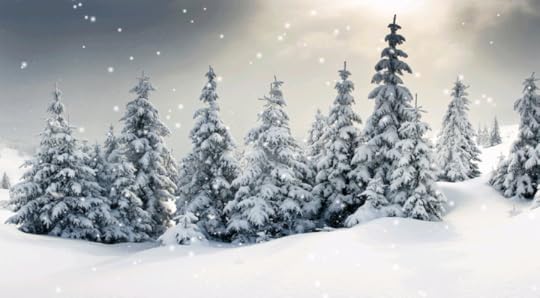What do you think?
Rate this book


320 pages, Hardcover
First published December 20, 2013
The Aleutian Archipelago: fourteen large and fifty-five small volcanic islands, strung over more than a thousand miles. Somewhere there, he’s alive. On good days, her faith overshadows doubt. And what is faith but belief independent of proof, a conviction that stands on its own. To this she knows John would roll his eyes. The thought makes her smile.John Easley is missing. Shaken by the death of his RCAF brother over the English Channel, the 38-year-old writer determines to bring information to the people at home about what is really happening in the war. It seems so much more meaningful to him than reporting on bird migration for National Geographic. He feels he owes Warren at least that much. His wife, Helen, disagrees. Their last words before he took off yet again on a war-reporting mission were harsh, and final.


Her chain of islands that dares to separate the North Pacific from the Bering Sea. A chain through which the wind whips into some of the world's most fearsome storms. One minute it's a hurricane, the next a breeze. But rivers! Rivers flow throughout the season - under bright summer sun, plates of winter ice - morning, noon, and night. Wind rises up and fades away, but a river flows endlessly.I rarely read books with an Alaskan setting, but I'm very glad to have read this one. I don't know how commonly it is known that the western-most Aleutians were invaded and occupied by the Japanese during World War II. It was the only time US land was occupied. This is as much a love story as a war story, however. (Some here at GR have shelved it as romance, but it is not what I think of as "romance.")
And our suffering? This too shall pass. The wind is not a river.
On June 3, 1942, just three days before Easley was scheduled to head for home, the Japanese launched a strike from light carriers and bombed Dutch Harbor Naval Base and Fort Mears Army Base, killing forty-three men, incinerating ships and buildings. These outposts on Unalaska and Amaknak islands, near the Alaskan mainland, were the only U.S. defenses in the Aleutian Archipelago. June 7 saw the U.S. victory at Midway. That same day, six months after the attack on Pearl Harbor, the Americans learned that the Japanese Army had seized the islands of Kiska and Attu at the far end of the Aleutian Chain. Eleven days later, the U.S. Navy made a brief statement to the press downplaying events.
The fog slips like satin from the slopes of a dormant volcano, revealing a frigid beauty. All is laid bare in the bold relief of the rare Aleutian sun -- patches of white, tan husk of last year's grass, blood blue North Pacific.
The wind is not a river.
Her chain of islands that dares to separate the North Pacific from the Bering Sea. A chain through which the wind whips into some of the world's most fearsome storms. One minute it's a hurricane, the next a breeze. But rivers! Rivers flow through the seasons -- under bright summer sun, plates of winter ice -- morning, noon, and night. Wind rises up and fades away, but a river flows endlessly.
And our suffering? This too shall pass. The wind is not a river.
